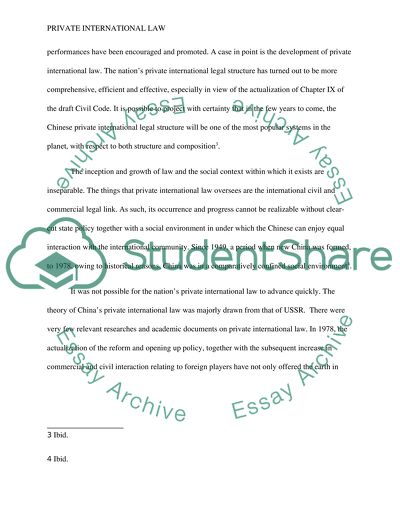Cite this document
(“The historic Development of Chinese Private International Law Article”, n.d.)
Retrieved from https://studentshare.org/law/1646040-the-historic-development-of-chinese-private-international-law
Retrieved from https://studentshare.org/law/1646040-the-historic-development-of-chinese-private-international-law
(The Historic Development of Chinese Private International Law Article)
https://studentshare.org/law/1646040-the-historic-development-of-chinese-private-international-law.
https://studentshare.org/law/1646040-the-historic-development-of-chinese-private-international-law.
“The Historic Development of Chinese Private International Law Article”, n.d. https://studentshare.org/law/1646040-the-historic-development-of-chinese-private-international-law.


